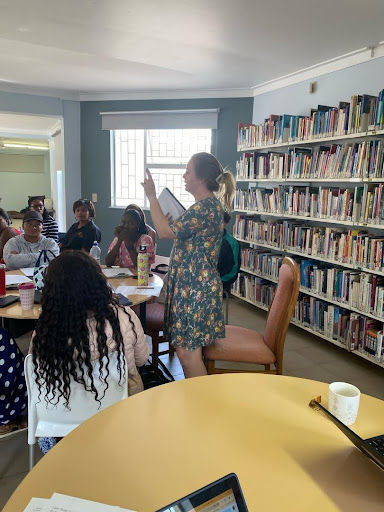Kurt Hahn’s “Six Declines of Modern Youth”, “Four Antidotes” to Solve Them, and WIS’s Approach to Outdoor Education
- Windhoek International School
- Jan 26, 2024
- 2 min read
Regular readers of the Oryx will know that much of WIS’s approach to education has been inspired by the life and work of Kurt Hahn. During his lifetime, Hahn experienced some of the best and worst of what civilisations in the first half of the 20th century.
Kurt Hahn summarised his beliefs about the younger generation at the time into six key points, describing them as the Six Declines of Modern Youth:
Decline of Fitness due to modern methods of locomotion;
Decline of Initiative and Enterprise due to the widespread disease of spectatoritis (i.e. "excessive indulgence in forms of amusement in which one is a passive spectator rather than an active participant");
Decline of Memory and Imagination due to the confused restlessness of modern life;
Decline of Skill and Care due to the weakened tradition of craftsmanship;
Decline of Self-discipline due to the ever-present availability of stimulants and tranquillisers;
Decline of Compassion due to the unseemly haste with which modern life is conducted or, as William Temple called it, "spiritual death".
Hahn also proposed four ‘antidotes’ to these problems.
These antidotes to the six declines were a driving force behind the various schools and institutions that Kurt Hahn led and helped to establish - such as Salem School, UWC Atlantic College, Gordonstoun School, Outward Bound, Round Square, and the International Baccalaureate:
Fitness Training (e.g., to compete with oneself in physical fitness; in so doing, train the discipline and determination of the mind through the body);
Expeditions (e.g., via sea or land, to engage in long, challenging endurance tasks);
Projects (e.g., involving crafts and manual skills);
Rescue Service (e.g., surf lifesaving, fire fighting, first aid).
It has now been almost one hundred years since Kurt Hahn first penned words about these ‘modern declines’, and these worries and his proposed solutions remain remarkably relevant today. They have certainly informed the mission of our school!
WIS’s holistic curriculum incorporates many of these themes. Our school principles go further by serving as a summary of the values that inform our decisions and measure the integrity of our approach to learning.
We may not always do this perfectly, but we certainly try! Two ways this has been happening this week are our early morning athletics training and our Grade 6 outdoor educators. I am thankful for the masterful way in which our educators meet students where they are at, and guide them as far as they can go.
Sincerely,
Ethan Van Drunen
Director




















Comments